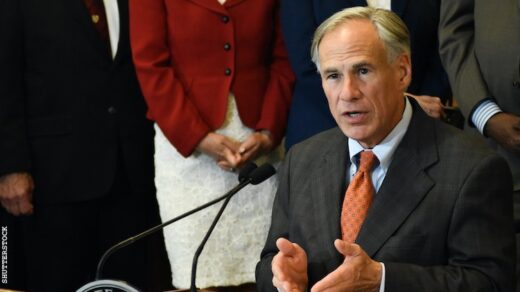Queer TikTok creators remain hopeful despite Supreme Court’s ruling upholding TikTok ban
Author: Christopher Wiggins
The U.S. Supreme Court ruled on Friday that the U.S. government can ban the popular social media video platform TikTok. The unanimous decision to uphold a federal law prohibiting the app in the United States has sent shockwaves through the platform’s massive community of creators. Among the hardest hit are LGBTQ+ creators, who have used the platform to foster safe spaces, share their stories, and build supportive communities. For many, it is also a source of income. With the ban set to take effect on Sunday, many are grappling with the implications for their livelihoods and the broader cultural impact.
Keep up with the latest in LGBTQ+ news and politics. Sign up for The Advocate’s email newsletter.
The ruling feels like a profound loss for RaeShanda Lias, a content creator with more than 2.4 million TikTok followers. “This was not something that needed to be done,” Lias told The Advocate in a phone interview. “TikTok isn’t just an app. It’s a whole movement.”
Related: Will TikTok go dark? Will Trump enforce the ban? Here’s what to know
Lias, who began using TikTok in 2021, credits the platform with changing her life. Through TikTok, she shared personal experiences, including a public divorce, and found an audience that resonated with her authenticity. “It’s a source of income for so many people,” Lias said. “It’s also an outlet to share ideas, start movements, and create connections.”
She said that TikTok’s unique algorithm and format have made it a cultural hub for creators from marginalized communities, particularly LGBTQ+ people. Lias highlighted how TikTok’s environment differs from other platforms, calling it a “safe space” compared to Facebook and Instagram, which she described as rife with anti-LGBTQ+ rhetoric.
V Spehar, a nonbinary journalist behind the popular TikTok account Under the Desk News, where they have more than 3.3 million followers, reacted to the ruling in a phone interview on Friday. “I think it was expected,” Spehar told The Advocate, “and I think that’s part of why Biden put out this 36-hour delay. He wanted [President-elect Donald] Trump to make the decision.”
Related: V Spehar reflects on 4 years of Under the Desk News, the TikTok ban & tension with traditional media
The Advocate contacted Trump’s spokesperson, Karoline Leavitt, for comment.
NBC Newsreports that the Biden administration has indicated it will leave enforcement of the TikTok ban to Trump, who is set to take office on Monday. In a statement, White House Press Secretary Karine Jean-Pierre said, “Given the sheer fact of timing, this Administration recognizes that actions to implement the law simply must fall to the next Administration.”
Spehar noted that Biden likely avoided invoking a 90-day extension for TikTok because it would have required congressional approval, which was unlikely to succeed.
They highlighted how this decision sets up a complex political situation for the former and future president, who has publicly vowed to save the app but has limited legal options.
“Trump doesn’t actually have that many legal moves to save the platform outside of the 90-day extension,” Spehar said. They described the potential political clash between Trump and anti-China Republican lawmakers like Arizona U.S. Sen. Tom Cotton, framing it as a test of loyalty within the party.
“Let me be crystal clear: there will be no extensions, no concessions, and no compromises for TikTok,” Cotton said in a statement on Wednesday.
Spehar also criticized the spread of misinformation about potential solutions, including rumors of billionaire X owner Elon Musk buying TikTok. “There’s no possibility that Elon Musk is buying TikTok,” Spehar said. Instead, they predicted a compromise where TikTok’s data might be spun off to satisfy national security concerns, allowing Trump to claim a political win while keeping the app operational.
Lias expressed cautious hope that Trump might intervene to prevent the ban, despite their personal views of his administration. “I don’t wish for this administration to fail or tear this whole country apart,” Lias said. “If there is something that can be done, I hope that it will be—for the greater good of all people.”
Related: Not cool with Pride Month? Well, queer creator RaeShanda Lias-Lockhart thinks you should ‘mind your business’
The ban-or-sale law, known as the Protecting Americans From Foreign Adversary Controlled Applications Act, requires TikTok’s Chinese parent company, ByteDance, to sell the app by January 19 or face a nationwide ban. The law has sparked widespread criticism from free speech advocates and creators who argue that it unfairly targets TikTok without clear evidence of its alleged national security risks.
TikTok has announced it will temporarily disable the app for U.S. users starting Sunday if no resolution is reached. “When you log in, a pop-up will say, ‘Unfortunately, due to congressional action and the Supreme Court, you can no longer access this application,’” Spehar explained. They predicted this would trigger significant public outcry, potentially leading to a ban reversal within days. “I think TikTok could be back on as early as Monday or Tuesday,” Spehar said, citing the platform’s widespread popularity and cultural significance.
Despite the uncertainty, creators are determined to adapt. Lias has already begun migrating followers to Instagram and exploring other platforms, but she acknowledged the challenges of replicating TikTok’s unique community elsewhere. “Yes, you can find us on other platforms,” Lias said. “But it just doesn’t hit the same.”
Spehar and Lias emphasized the broader implications of the ban on freedom of speech and digital media. “This isn’t just about TikTok,” Spehar said. “It’s about the government setting a precedent that platforms can be shut down without evidence or due process.”
Lias echoed this sentiment, adding, “They should care because this won’t be the last app or the last thing under freedom of speech that’s taken away.”
From Your Site Articles
Original Article on The Advocate
Author: Christopher Wiggins





